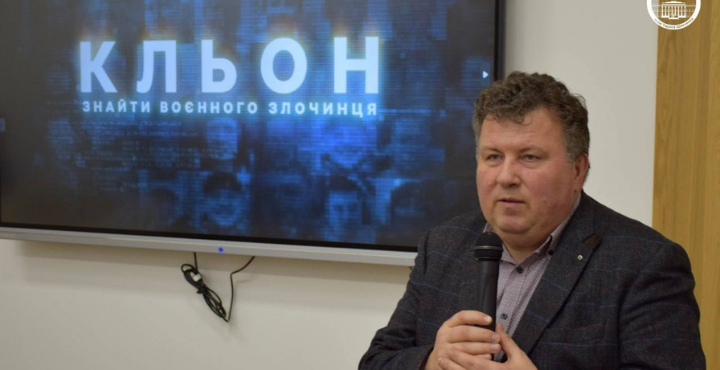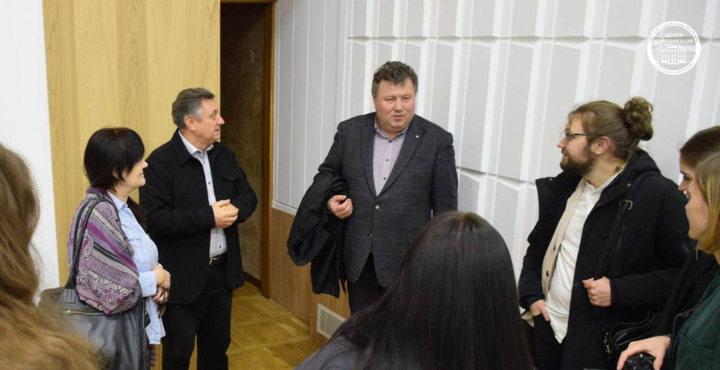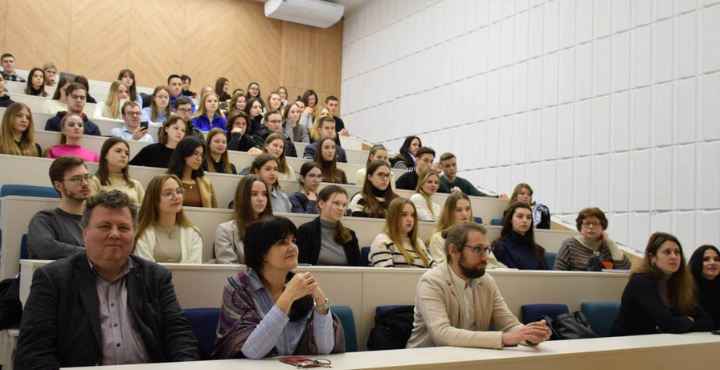Presentation of the documentary film about the Yagidnyan tragedy: knowing to punish the crime

The other day at the Educational and Scientific Institute of International Relations Taras Shevchenko National University of Kyiv, a presentation of the "Klyon" investigation was held by the journalists of Suspilny. This documentary tells us the story of the Yagidnyan tragedy, which occurred during the occupation of Chernihiv region in March 2022. KNU students were visited by the members of the investigative team of Suspilny: Alla Sadovnyk - the author of the "Klyon" investigation, journalist of the investigative editorial office of Suspilny; Inna Biletska is the author of the script and the producer of the investigation, the editor-in-chief of the investigative editorial office of Suspilny. " Klyon " is the second part of the investigation of the crimes committed by the Russian military against the residents of Yagidne village. Journalists presented the first part of the investigation - "Diary of a survivor" - in the fall of 2022.

Addressing to the participants of the review, who were international students and student journalists, the rector professor Volodymyr Bugrov recalled the first days of Russia's large-scale invasion of Ukraine, the details of the events that changed the usual course of university life. "Now, when during the meetings with our foreign colleagues, they ask about those hours and days, sometimes I regret not keeping a diary, which means that something has already been lost. They are surprised that at that time it was most difficult to find gasoline or diesel fuel to deliver bread and water to those locations where our students or employees lived." In his opinion, investigative journalists, whose work is presented today in the walls of one of the buildings of the University, perform a special task - they preserve the moral and psychological truth of life in that period, form the foundations for further historical research and objective international legal conclusions.

The meeting with Suspilny journalists was also useful because international students could trace the methods and tools used by investigators to find a war criminal. Thus, thanks to a video published by a Russian propagandist, documentarians found the trail of a Russian officer who had been wanted for more than a year as the initiator of the atrocities in Yagidne. There, in the basement of the school, 366 villagers were held hostage for 27 days, ten of them died during this detention. The documentary detective presents the specifics of the search for war criminals, the intricacies of working under a legend, and the lengths to which Russian murderous officers are willing to go in order to avoid responsibility for war crimes.
The work of investigative journalists is an important part of finding and inevitably punishing murderers of peaceful Ukrainian citizens. The collected data can be useful for specialists in international law at the time when the international court for war criminals will appear.
The presentation was organized by an initiative group of teachers of the Educational and Scientific Institute of International Relations with the assistance of the vice-rector for public relations of National University of Kyiv Olena Dobrzhanska.